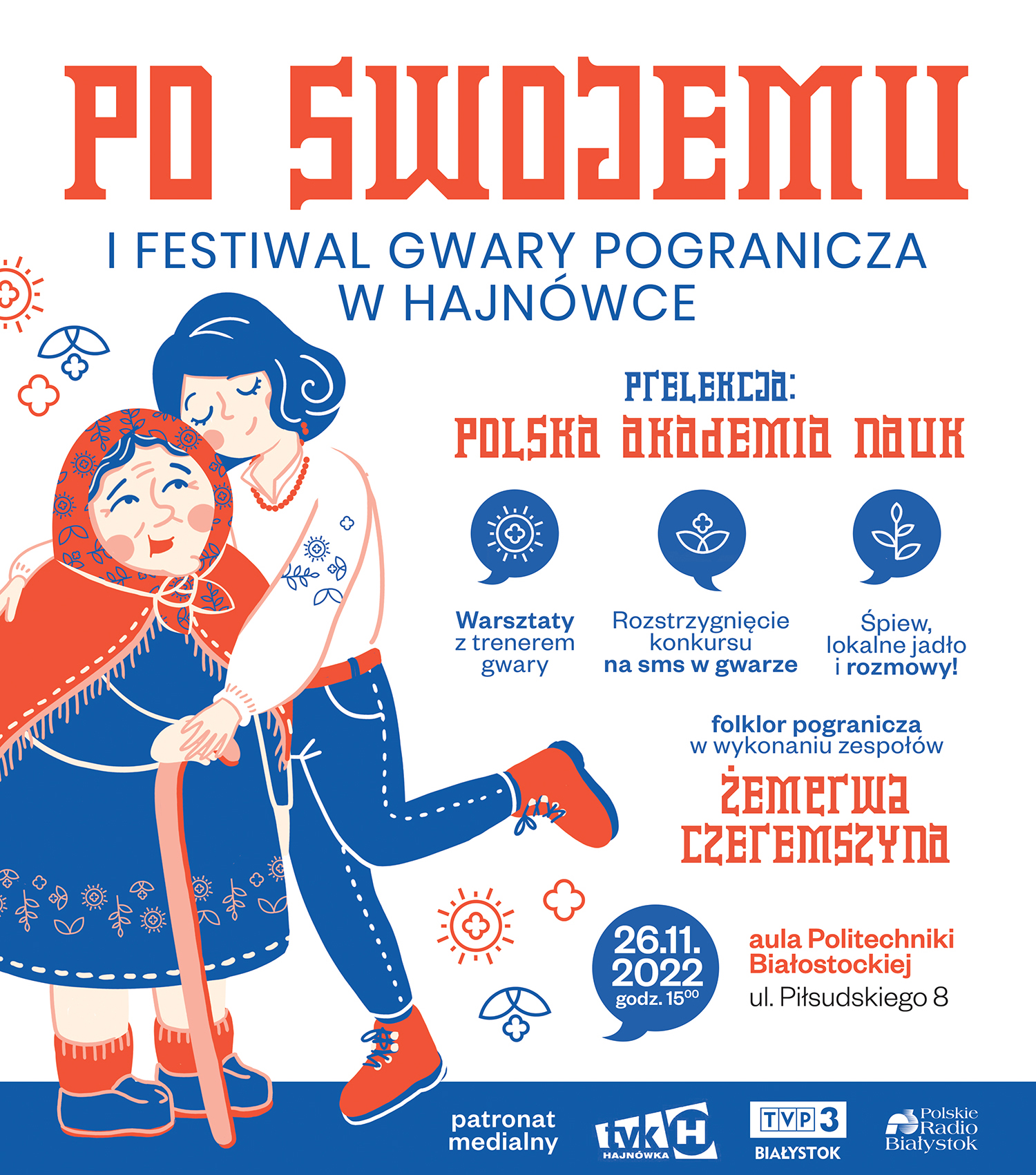The 1st Festival of the Dialect of the Borderland Po Swojemu is behind us

Although the first one turned out to be a success. The attendance at the festival was so large that there were no seats. The event brought together people from various backgrounds who believe that the local dialect is valuable and that everything should be done to preserve it. And it’s best to use it every day: Dawaj po swojemu, chuczej bude.
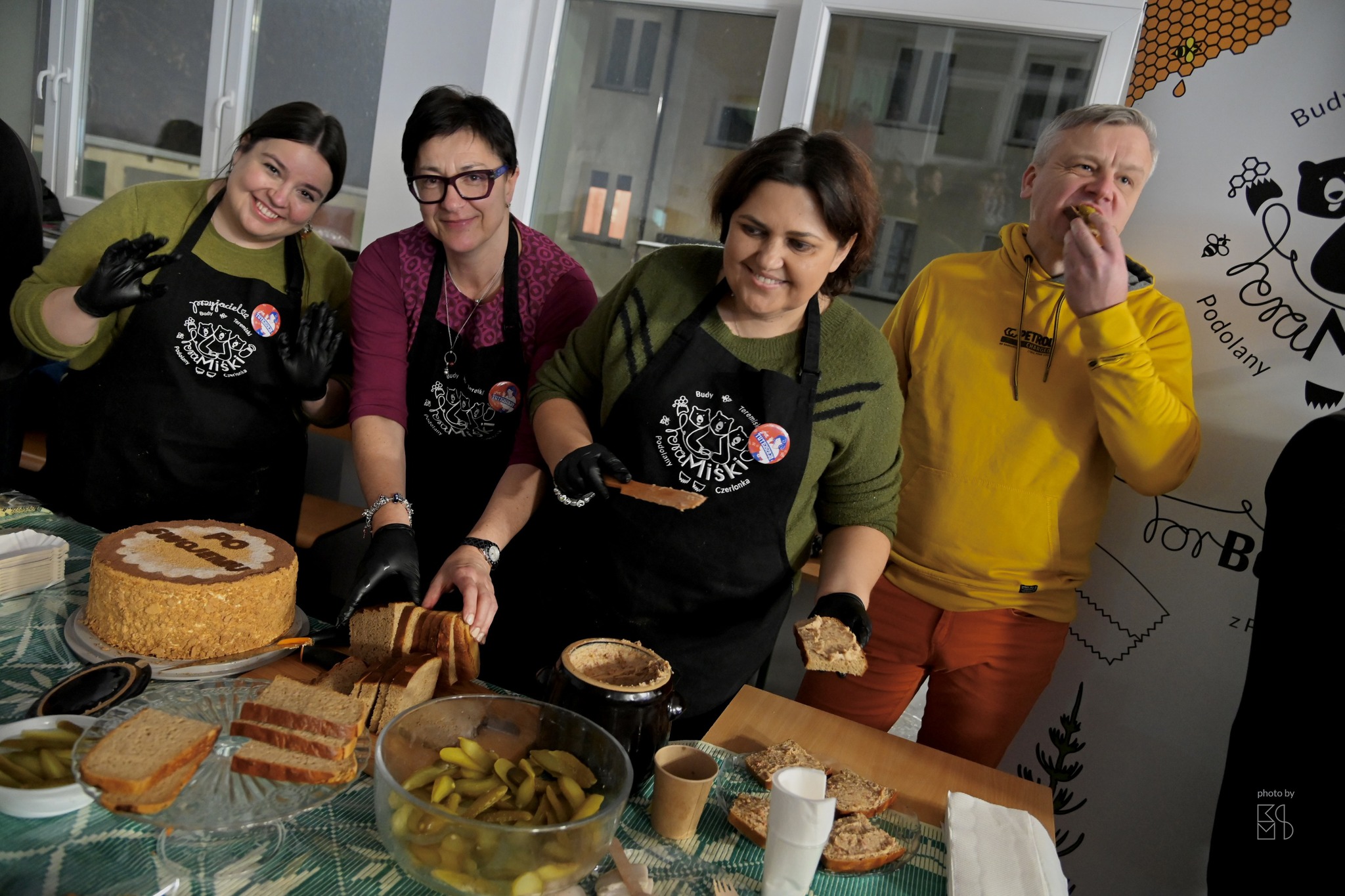
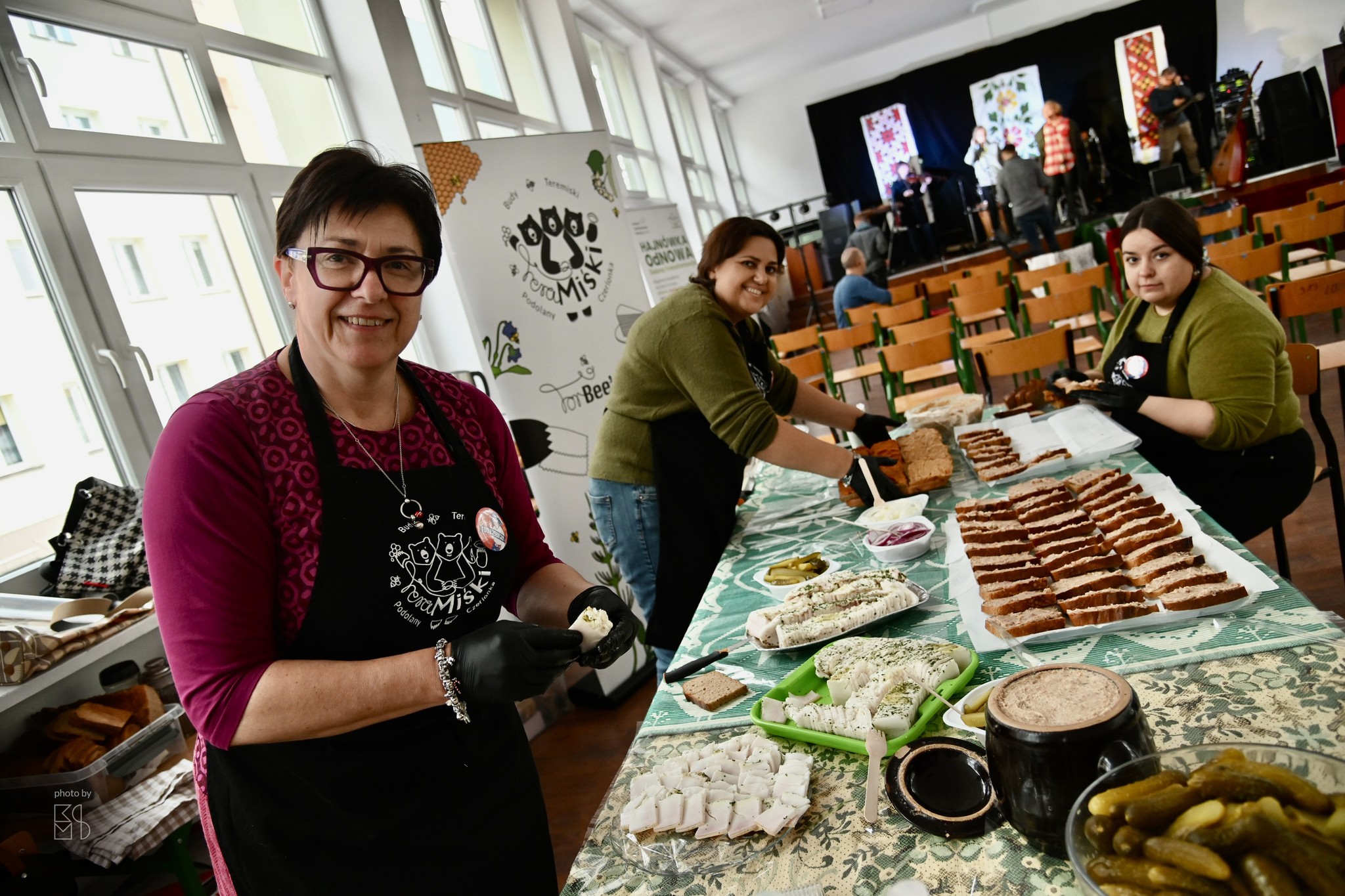
The festival is another undertaking within the project “Hajnówka ReNewal – Green Transformation”. It took place on November 26 in the project office at Piłsudskiego St. 8. The TeraMiśki Country Housewives Association took up the organization. The ladies took care of both body and soul food. The former hall of the Bialystok University of Technology was decorated with beautiful kilims with patterns characteristic of this part of Podlasie, the floor was warmed by hand-made rugs. There was also mood lighting, a rich buffet and performances of bands singing in the local dialect. Those willing could strengthen themselves with homemade liqueur, eat a slice of bread with excellent lard or pork fat and eat a cucumber. And for dessert – marcinek cake.

Hello, excuse me, I'm starting so late, but a lot of you came and chairs had to be brought in. Your attendance is the greatest reward. Today my dream came true. Today is the 1st Borderland Dialect Festival taking place, I hope it will stay in your hearts, in your heads. We were connected with the organizer of KGW TeraMiśki by passion for action, they are residents of the area, natives, and visitors.

One of the goals of the event was to bring people from different backgrounds together, and it has succeeded.
The festival was created thanks to a project in which social work is very important. It is the duty of every generation to take care of this language. Currently, we have a very fast pace of civilization changes. It used to be common to hear the dialect on the streets of Hajnówka, now only some people speak it in this way and it is heard much less often on the street. Literary languages - Polish, Belarusian and Ukrainian - have been preserved. But those like ours are at risk. That is why what has been done today is so important. The more such initiatives there are, the more we document, the greater the chance that the dialect will survive.
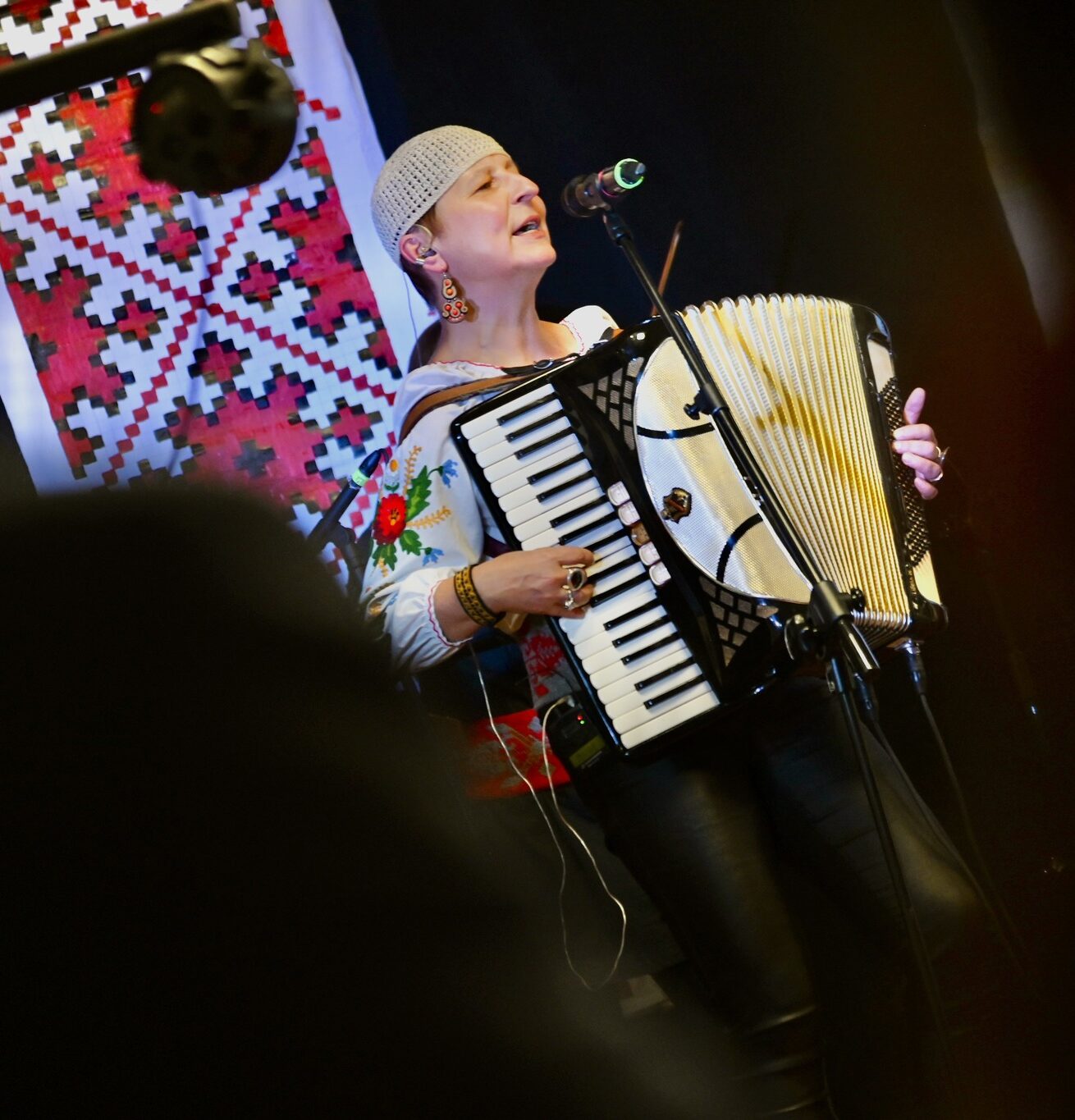

Ewa Kulikowska, the mayor of Sokółka, a city that is also famous for its local dialect, spoke in a similar tone.
This is my first time at such an event and I am very happy that someone finally initiated such a meeting. Next year I would like to bring all the village mayors here. We realize that as Poles and as residents of the Podlasie, that we live in the borderlands and that since childhood we have been accompanied by dialect, or rather its various types characteristic for a given region of the province, as well as the country. This is due to the fact that the languages of different nations that have lived in these areas for centuries have intermingled with each other.
We took our son to listen to the dialect. I deal with the dialect myself every day, because I work in a shop where most of the incoming customers say so. At home, we don't, although our son "catches" various words, maybe a little from his grandparents, and probably repeats them as a joke. I think it's good that such an event took place, after all, something is happening in Hajnówka.


Another participant of the festival was of a similar opinion. Plus, he was surprised by the turnout.
I expected that it would be a niche event and maybe twenty people would come. Meanwhile, the hall is full. Hundred, maybe more people. I thought, I'll go and see what happens. Meanwhile, there are a lot of friends, but also people probably not from Hajnówka.
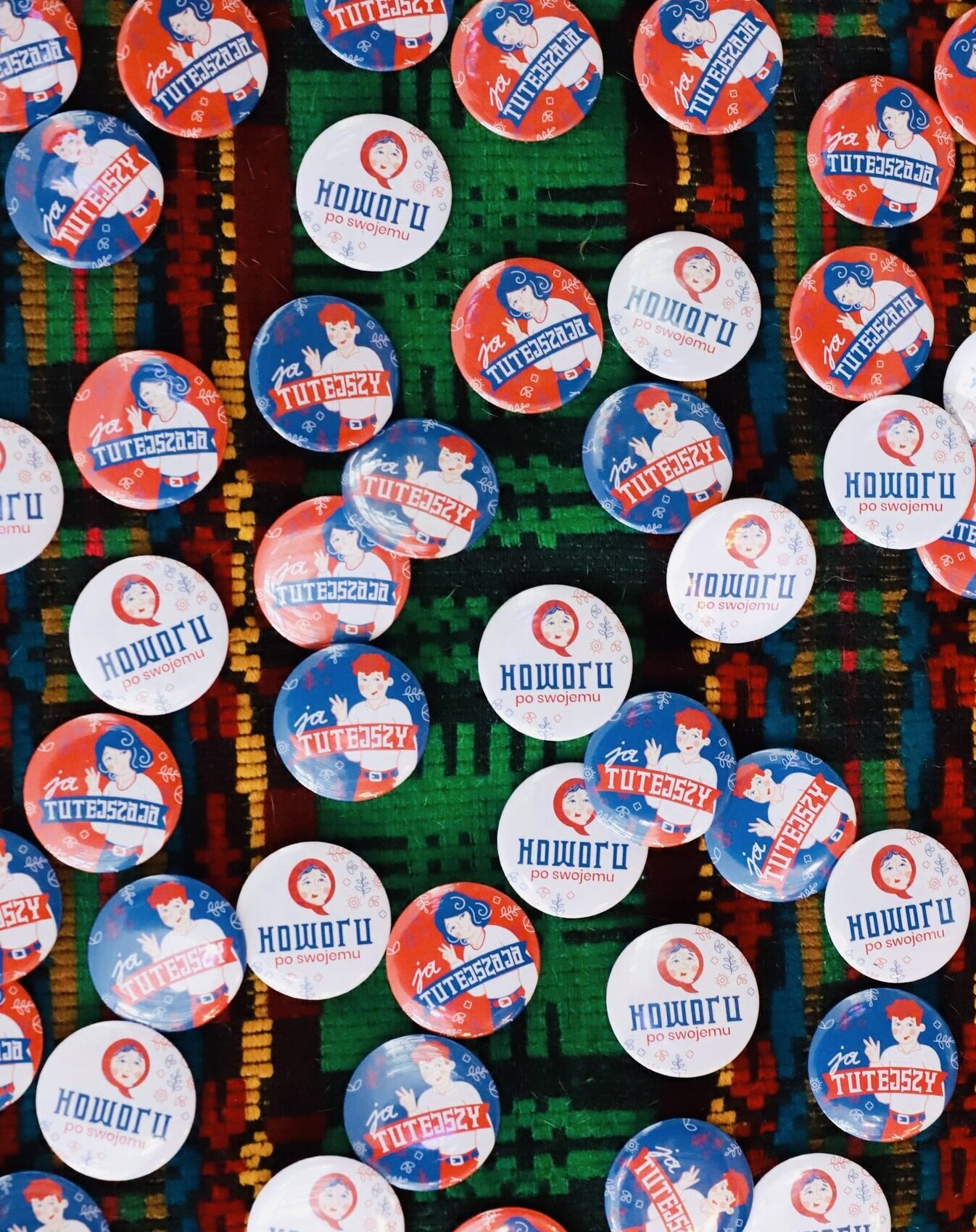
We counted. We set up about 200 chairs. They were all occupied, many people standing. Mr. Łukasz speaks “in his own way”, although at work rather than at home. It was at work that he got to know its different varieties. He works with colleagues from nearby towns who speak the local dialect.
Thanks to them, I mix styles, because the guys are from different sides and everyone has their own "in their own way" (laughs). Sometimes I hear from them that I speak strangely because I mix like that, a little from here, a little from there.


When planning the program of the festival, we decided to show the phonetic variants of the dialect. This is a touchy subject on the one hand, and a very interesting one on the other. For the last few years, I have been exploring the area of our region, from Sokółka to Siemiatycze, for research purposes, and I must tell you that there is no "po swojemu". Because what does it mean? In my village it is like that, but five villages away it is different. Which version is correct? each. They are all ours, we speak as we feel.


An expert from the National Academy of Sciences spoke about the specificity of the dialect of Podlasie, about the influences it was subjected to and how it developed. She mentioned, for example, the use of third person as a sign of respect, a custom still found in the countryside. She also emphasized that dialectal expressions are extremely precise in defining emotional states, character traits, it is very expressive speech. Which, however, is used less and less due to the expansion of the Polish language. That is why it is so important to try to preserve this local language. Creating publications, e.g. dialect dictionaries, or organizing events such as festivals serve this purpose well.
The point is not to become indifferent to the language of the ancestors, to try to preserve it. My colleague, a linguist and dialectologist, said that dialectologists are the guardians of a dying hearth. And he expressed regret that we don't really have anything to stoke this fire anymore. However, I believe that as long as there are people like Ania Nikitiuk and others, this bonfire will not go out and it will continue to be fueled.


If someone did not know such expressions as: melesz jazykom jak suczka chwostom, dawaj kubasu bo chatu roztresu or ochota hursz newoli, he had the opportunity to learn them at the festival. These are the proverbs that were on the commemorative stickers that we distributed to the participants. Those willing could buy pins made in a similar style. The author of the entire graphic design of the festival is Agata Łuksza from Hajnówka, who runs Pracownia Bobra.
Awareness and nurturing of local identity and emphasizing the value of the place of origin are the basis for the functioning of a strong local community. And a strong local community is the basis for the city's development. This was the purpose of including the subject of the local dialect among the projects of the New Development Path of Hajnówka. It is also a great form of promoting the city - by emphasizing the heritage of local culture. I am glad that the topic has been taken up by, on the one hand, experts in this field, and on the other hand, local authentic enthusiasts and lovers of the dialect.
We invite you to the festival next year. We hope that it will become a permanent element in the calendar of events in Hajnówka.
